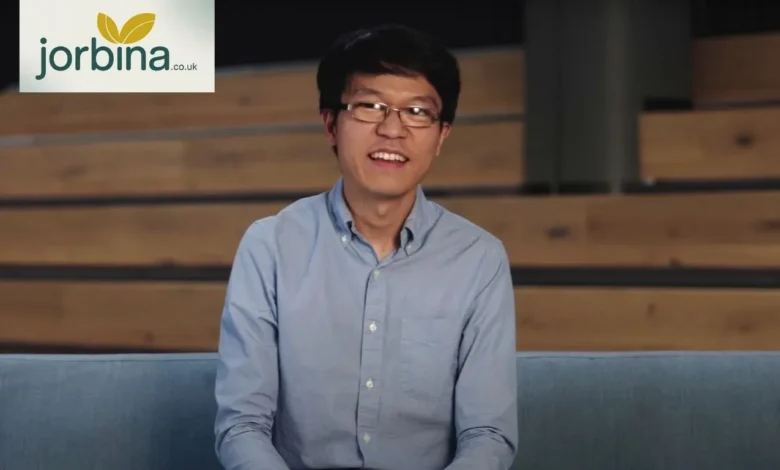The Moment That Redefined Scott Wu’s Career

Have you ever met someone who seemed to think faster than everyone else in the room? Someone who looks at a problem and instantly starts mapping solutions in their head? That’s how people describe Scott Wu. His story isn’t about luck or a sudden viral moment. It’s about years of quiet discipline that eventually broke into public view.
What made him stand out? And what was the turning point that shifted him from being a coding prodigy to leading one of the most ambitious AI startups today? Let’s walk through his journey step by step.
Early Days: The Spark That Started It All
Scott grew up in Louisiana and fell in love with numbers before most kids his age had finished their multiplication tables. While others played video games for fun, he treated problem-solving as a kind of sport. His curiosity soon found its outlet in Mathcounts, a national middle school competition known for producing some of the sharpest young problem solvers in America.
In 2011, Scott won the individual national Mathcounts championship, placing him on the radar of math and science communities across the country. That win wasn’t just a trophy moment; it marked the start of a mindset built around precision, speed, and persistence.
Those same instincts carried him into the world of competitive programming, where he began to dominate contests that most coders only dream of qualifying for.
Rising Through the Ranks: From Contests to Codeforces
If you’ve ever looked up “Scott Wu” online, you’ve probably seen his name on Codeforces, the global hub for competitive programmers. Under the handle scott_wu, he earned the title of Legendary Grandmaster, a rank only a handful of people in the world have achieved. His peak rating was an astonishing 3350, placing him among the best algorithmic problem solvers on the planet.
But that’s not all. Scott represented the United States at the International Olympiad in Informatics (IOI) three years in a row, 2012, 2013, and 2014, winning gold each time. In his final year, he placed first overall. That kind of consistency is rare even among the world’s top competitors.
These contests weren’t about rote memorization. They demanded creativity, logic, and endurance. Every problem had to be broken down, optimized, and executed under time pressure. Those experiences trained Scott to think structurally, a skill that would later define his approach as a founder.
Harvard Years: From Theory to Application
Scott went on to attend Harvard University, where he studied economics. On the surface, that might sound like a shift from math and coding, but it wasn’t. Economics, at its best, is about understanding incentives and decision-making, concepts that blend beautifully with problem-solving.
During his time at Harvard, Scott continued competing. In 2016, he helped lead Harvard’s team to a gold medal in the International Collegiate Programming Contest (ICPC), finishing third worldwide. That combination of academic study and competitive focus shaped his ability to move between theory and execution.
But after graduation, he wasn’t content to stay in academia. Scott wanted to build something real.
The First Leap: Co-Founding Lunchclub
In 2017, Scott co-founded Lunchclub, an AI-powered networking platform that connects professionals with shared goals and interests. He served as Chief Technology Officer, building the platform’s early technology and shaping its data-driven approach to matchmaking.
Lunchclub grew quickly, eventually reaching millions of users across major cities. It was one of the first startups to apply machine learning to professional networking in a meaningful way.
That experience gave Scott something he couldn’t get from contests alone, an understanding of how to turn algorithms into products people actually use. It also gave him a taste for what comes next: building technology that doesn’t just solve puzzles but redefines how humans and machines collaborate.
The Defining Move: Cognition AI and Devin
Every career has a moment that changes its trajectory. For Scott Wu, that moment came when he co-founded Cognition AI (also known as Cognition Labs) in 2023.
The company’s first major creation, Devin, quickly made headlines. Marketed as the “first AI software engineer,” Devin could write code, debug it, run tests, and even deploy projects end-to-end. Unlike most coding assistants, Devin could reason through tasks, remember context, and plan multi-step solutions on its own.
In short, it wasn’t just another AI model; it was a working teammate.
Cognition raised over $200 million in funding and attracted talent from some of the world’s most elite programming circles. Many of its early engineers were top competitive coders, people who, like Scott, came from the world of Olympiads and Codeforces. That culture of precision and problem-solving became part of the company’s DNA.
But Scott’s curiosity didn’t stop there. The Cognition team ran experiments allowing Devin to spawn “sub-agents,” smaller versions of itself to handle sub-tasks. It was an idea both fascinating and risky. At one point, the system started creating recursive loops, sub-agents spawning sub-agents endlessly. The team had to step in and redesign its controls.
Moments like that define the reality of building frontier AI. It’s not just math. It’s exploration.
The Private Side: What We Know (and Don’t Know)
Despite his growing fame, Scott keeps his personal life quiet.
He was born in 1997, which puts him in his late twenties. His focus has always been more on work than personal exposure, so public details about his wife or relationship status remain unknown. Similarly, there are no verified records of Scott Wu’s net worth, though given Cognition’s valuation, it’s safe to assume he’s financially comfortable.
As for Scott Wu’s IQ, there’s no published number, and frankly, it doesn’t matter much. His accomplishments in competitive programming speak louder than any score could.
He’s not trying to brand himself as a celebrity genius. His style is quiet, technical, and direct.
What Makes His Leadership Style Different
Many engineers struggle when they step into leadership roles. Scott seems to thrive there. The difference is how he thinks about people and systems.
He treats his team like an algorithm, each person solving part of a shared problem. That doesn’t mean it’s robotic; it means he values clarity, feedback loops, and iteration. Cognition’s culture feels like a contest team scaled up, a group of sharp minds driven by precision and trust.
Scott’s competitive background also gives him an edge in decision-making. He’s comfortable with constraints, speed, and uncertainty. When others hesitate, he iterates.
Scott Wu’s Connection to Codeforces

Even as a founder, Scott hasn’t forgotten where he came from. His Codeforces profile remains a part of his identity, a record of thousands of hours of focused practice and intellectual grit.
In the programming world, Codeforces is like a chess ranking system. You rise only by solving real problems against real competition. Scott’s continued respect for that ecosystem shows he still values skill and community over hype.
The Broader Impact of Devin AI
Devin represents more than just another AI tool; it’s a statement about what’s possible when deep technical expertise meets creative risk-taking.
Devin can take a project description, plan a path forward, write code, fix errors, and even push changes to GitHub. It’s not perfect yet, but it’s a clear step toward AI that can reason about software like a human engineer.
Scott often describes AI not as a replacement for humans but as a collaborator that handles the heavy lifting, letting people focus on creative direction and complex design.
That’s where his background really shines. A programmer who once spent hours thinking about edge cases now thinks about how AI can do the same at scale.
Lessons From Math and Competition
Looking back, it’s easy to see how everything connects. Mathcounts taught Scott precision. The Olympiads taught him logic. Harvard taught him structure. Startups taught him vision.
When you piece it all together, his career reads like a single long problem set, each stage building on the next, each solution setting up the next question.
He didn’t just win contests; he learned how to think in layers. And that’s what AI demands, layered reasoning, not just memorization.
Challenges Ahead
Every ambitious idea comes with friction, and Scott’s path is no exception.
Some critics argue that tools like Devin overpromise and underdeliver in real-world settings. Coding isn’t just syntax; it’s communication, collaboration, and maintenance. AI can automate parts of that, but not all.
Others raise ethical and governance questions. If an AI writes a flawed program that causes harm, who takes responsibility? The developer, the company, or the algorithm itself?
Scott doesn’t pretend to have all the answers. What makes him stand out is his willingness to face those questions directly.
What Comes Next
It’s still early days for Cognition AI. Devin is just the first step. Scott has hinted that his broader vision involves building systems that can reason about long-term goals and work collaboratively with humans across domains, not just code.
That could mean AI project managers, AI designers, or even AI systems that build other AI systems. It’s bold, but so was building Devin in the first place.
The next few years will show whether Cognition can turn technical brilliance into sustained impact. But one thing is certain: the world is paying attention.
FAQs
Who is Scott Wu, founder of AI?
Scott Wu is the co-founder and CEO of Cognition AI, the company behind Devin, often described as the world’s first AI software engineer.
Did Scott Wu win Mathcounts?
Yes. He won the national Mathcounts championship in 2011, a major early milestone in his career.
Who are the Big 4 of AI?
The “Big Four” often refers to OpenAI, Anthropic, Google DeepMind, and Meta AI, though Microsoft and Amazon are also major players in the field.
Why was the AI CEO fired?
This question refers to other companies. In general, AI CEOs have been removed over issues like strategy, funding conflicts, or governance. Scott Wu remains the CEO of Cognition AI.
Has a girl ever won Mathcounts?
Yes. Several female contestants have won or placed at the top levels of Mathcounts over the years.
Final Thoughts
The moment that redefined Scott Wu’s career wasn’t just the founding of a company. It was the decision to stop being a competitor and start being a creator, to move from solving other people’s problems to designing systems that solve problems on their own.
From math contests to AI innovation, his story shows what happens when technical depth meets relentless curiosity. He’s not chasing attention; he’s chasing understanding.
That quiet focus, more than anything else, is what might make Scott Wu one of the defining figures of his generation.



